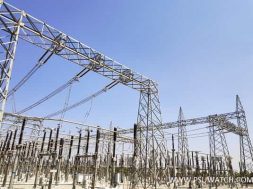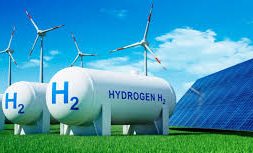
Parched Egypt Seeks Partners for $2.5 Billion Desalination Plan
Egypt is seeking partners to invest in a $2.5 billion initiative to build more than a dozen renewable energy-powered desalination plants by 2025, as the country tries to tackle water shortages.
According to the fund’s chief executive, Ayman Soliman, officials plan 17 new plants that will each be built, owned and operated by the Egyptian Sovereign Wealth Fund in partnership with a group of local and foreign investors, along with solar and other green plants. Sources will run.
The Arab world’s most populous country relies on the Nile for almost all of its fresh water and is facing a yawning supply deficit that officials fear is filling a massive hydroelectric dam on Ethiopia’s main tributary.
“Egypt is keen to build a sustainable technology base to control its destiny when it comes to water security,” Soliman said in an interview. He said the wealth fund aims to take a minority stake in all the plants with the winning bidders.
Read: Why neighbors of Ethiopia’s mega-dam are angry: Quiktec
Population growth and climate change have also made Egypt vulnerable to water scarcity. The world needs to spend $6.7 trillion on water infrastructure by 2030, according to the United Nations, which says about 1.2 billion people already live in areas with physical scarcity.
According to the Ministry of Irrigation, Egypt, which requires about 114 billion cubic meters of water each year to meet its more than 100 million people, gets only about half of that from natural sources. It addresses shortages step by step, including recycling agricultural wastewater and groundwater and importing additional food instead of irrigating more crops.
Soliman said the 17 plants, which are targeted to produce 2.8 million cubic meters of desalinated water per day, are part of a broader plan to add 6.4 million cubic meters of daily capacity by 2050.
The ministries of housing, planning, finance and power are all involved, and the government will be the off-taker for desalinated water at “competitive rates”.
According to the state-run Ahram Online news website, Egypt was operating 76 desalination plants capable of producing about 832,000 cubic meters per day as of May.
Egypt’s first sovereign fund, which was set up in 2018, is modeled after initiatives in Malaysia and India. The fund aims to partner with the private sector and generate additional funding from the state’s under-utilized assets that it plans to manage.
Investor Outreach
Several investors have expressed interest, Soliman said without identifying them. The European Bank for Reconstruction and Development and the International Finance Corporation will provide technical assistance and advice on the bidding. He said the first quarter of 2022 is expected to begin with tenders for production of about 1 million cubic meters.
According to the CEO, the project will benefit from Egypt’s competitive advantage in producing cheap renewable energy and allow access to green financing, potentially reducing costs.
About 8.6% of Egypt’s electricity comes from renewable energy, which is targeted to increase to 20% by 2022 and double by 2035. Benban, a $4 billion solar park near the southern city of Aswan, is one of the world’s largest, while the country also operates a wind farm along the Red Sea.
Egypt’s cabinet said last month that officials were in talks with Norway’s Skatec ASA about possible cooperation on projects using renewable energy for desalination.
“We’re going to be managing a variety of partnerships to meet a very aggressive timeline,” Soliman said, citing a “huge appetite.”
















